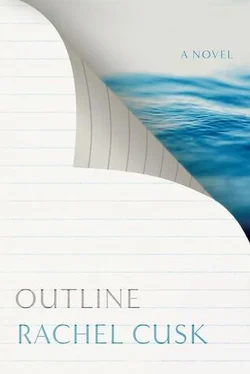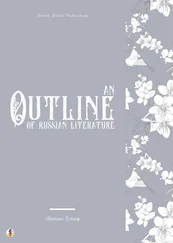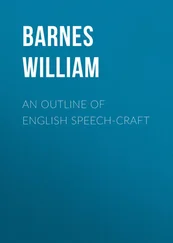It was now that the propriety of his first wife, the health and prosperity of their family life and the depth of their shared past, began to smite him. The first wife, after a period of unhappiness, had married again: she had become, after their divorce, quite fixated on skiing, going to northern Europe and the mountains whenever she could, and before long had declared herself married to an instructor in Lech who had given her back, so she said, her confidence. That marriage, my neighbour admitted, remained intact to this day. But back in the time of its inception, my neighbour had begun to realise he had made a mistake, and had endeavoured to restore contact with his first wife, with what intentions he wasn’t quite clear. Their two children, a boy and a girl, were still quite small: it was reasonable enough, after all, that they should be in touch. Dimly he remembered that in the period immediately following their separation, it was she who was always trying to get hold of him; and remembered too that he had avoided her calls, intent as he was on the pursuit of the woman who was now his second wife. He was unavailable, gone into a new world in which his first wife appeared barely to exist, in which she was a kind of ridiculous cardboard figure whose actions — so he persuaded himself and others — were the actions of a madwoman. But now it was she who could not be found: she was plunging down cold white mountainsides in the Arlberg, where he did not exist for her any more than she had existed for him. She didn’t answer his calls, or answered them curtly, distractedly, saying she had to go. She could not be called upon to recognise him, and this was the most bewildering thing of all, for it made him feel absolutely unreal. It was with her, after all, that his identity had been forged: if she no longer recognised him, then who was he?
The strange thing is, he said, that even now, when these events are long in the past and he and his first wife communicate more regularly, she only has to speak for more than a minute and she begins to irritate him. And he didn’t doubt that had she rushed back from the mountains, in the time when he seemed to have had a change of heart, she would quickly have come to irritate him so much that the whole demise of their relationship would have been re-enacted. Instead they have grown older at a distance: when he speaks to her he imagines quite clearly the life they would have had, the life they would be sharing now. It is like walking past a house you used to live in: the fact that it still exists, so concrete, makes everything that has happened since seem somehow insubstantial. Without structure, events are unreal: the reality of his wife, like the reality of the house, was structural, determinative. It had limitations, which he encounters when he hears his wife on the telephone. Yet the life without limitations has been exhausting, has been one long history of actual and emotional expense, like thirty years of living in one hotel after another. It is the feeling of impermanence, of homelessness, that has cost him. He has spent and spent to rid himself of that feeling, to put a roof over his own head. And all the time he sees at a distance his home — his wife — standing there, essentially unchanged, but belonging to other people now.
I said that the way he had told his story rather proved that point, because I couldn’t see the second wife half as clearly as I could see the first. In fact, I didn’t entirely believe in her. She was rolled out as an all-purpose villain, but what wrong, really, had she done? She had never pretended to be an intellectual, as for instance my neighbour had pretended to be rich, and since she had been valued entirely for her beauty, it was natural — some would say sensible — that she should want to put a price on it. And as for Venezuela, who was he to say what someone ought or ought not to know? There was plenty, I felt sure, that he himself didn’t know, and what he didn’t know didn’t exist for him, any more than Venezuela existed for his pretty wife. My neighbour frowned so deeply that clownish furrows appeared on either side of his chin.
‘I admit,’ he said after a long pause, ‘that on this subject I may be somewhat biased.’
The truth was that he could not forgive his second wife her treatment of his children, who spent the school holidays with them, usually at the old family house on the island. She was particularly jealous of the eldest, a boy, whose every movement she criticised. She watched him with an obsessiveness that was quite extraordinary to behold, and she was always putting him to work around the house, blaming him for the smallest evidence of disorder and insisting on her right to punish him for what she alone thought of as misdemeanours. Once, he returned to the house to find that the boy had been shut in the extensive, catacomb-like cellars that ran all the way under the building, a dark and sinister place at the best of times, where he himself used to be afraid to go as a child. He was lying on his side, shaking, and told his father he had been put there for failing to clear his plate from the table. It was as though he represented everything that was burdensome in her wifely role, as though he were the incarnation of some injustice she felt pinioned by: and he was the proof, too, that she had not come first and never would, so far as her husband was concerned.
He could never understand this need of hers for primacy, for after all it wasn’t his fault that he had lived a life before he met her; but increasingly she seemed bent on the destruction of that history, and of the children who were its ineradicable evidence. They had, by then, a child of their own, also a boy, but far from rounding things out this had only seemed to make her jealousy worse. She accused him of not loving their son as much as he loved his older children; she watched him constantly for evidence of favour, and in fact she favoured their own child blatantly, but she was often angry with the little boy too, as though she felt that a different child could have won this battle for her. And indeed she more or less abandoned their son, when the end came. They were spending the summer on the island, and her parents — the armchairs — were there too. He was fonder of them than ever by now, for he saw their flatness, sympathetically, as the evidence of their daughter’s cyclonic nature. They were like a terrain forever being hit by tornadoes; they lived in a state of permanent semi-devastation. His wife got it into her head that she wanted to return to Athens: she was bored, he supposed, on the island; there were probably parties she wanted to go to, things she wanted to do; she had got tired of always spending the summers here, in the family mausoleum; and besides, her parents were due to fly back shortly from Athens, so they could all go together, she said, leaving the older children here in the care of the housekeeper. My neighbour replied that he couldn’t go to Athens now. He couldn’t possibly leave his children — they were staying with him for another two or three weeks. How could he desert them, when this was the only time he had with them? Well if he didn’t come, she said, he could quite simply consider their marriage to be over.
This was, then, the actual contest: finally he was being asked to choose, and of course it felt to him like no choice at all. It felt utterly unreasonable, and a terrible argument ensued, at the end of which his wife, their son and her parents boarded a boat and returned to Athens. Before they left, his father-in-law made a rare excursion into speech. What he said was that he could see it from my neighbour’s point of view. It was the last my neighbour ever saw of them, and more or less the last he ever saw of his wife, who returned with her parents to England and from there divorced him. She hired a very good lawyer, and he found himself near financial ruin for the second time in his life. He sold the yacht, and bought a small motor boat that reflected the state of his fortunes more accurately. Their son, though, came drifting back once his mother remarried, having found herself an English aristocrat of demonstrably enormous wealth — and discovered that the child impeded her second marriage in much the same way my neighbour’s children had impeded his. In this last detail there was evidence if not of his ex-wife’s integrity, then at least of a certain consistency.
Читать дальше












